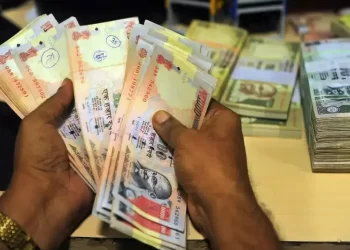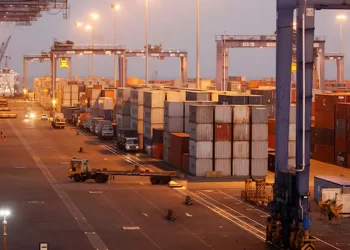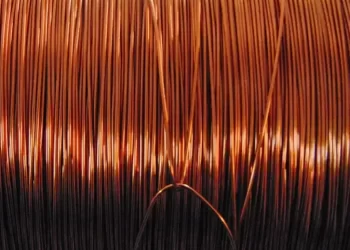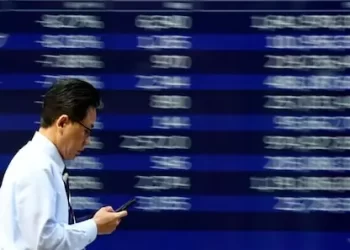India has become the next big bet for PepsiCo, Unilever and other packaged goods giants looking to fill the growth vacuum left by an uneven recovery in China.
With India’s economy expanding at the fastest pace among major emerging markets, companies are trying to serve its diverse palette by launching new flavors and size variants aimed at attracting the country’s vast population and untapped rural market.
“While the last decade had companies focused on selling into China, the next decade is about selling into India,” said Brian Jacobsen, chief economist at Annex Wealth Management.
“You have to go where the demographic and economic tailwinds are at your back.”
Major consumer goods companies based in India, the world’s most populous country, are expecting higher government spending, a better monsoon season and a resurgence in private consumption to help consumer spending recover in the coming quarters.
That is expected to boost the combined market share of the top five multinational companies – Coca-Cola, P&G, PepsiCo, Unilever and Reckitt – to 20.53% in 2023 from 19.27% in 2022, mainly in the baby care, consumer health, cosmetics, beverage and household categories, according to research firm GlobalData.
Their total market share in China is forecast to shrink to 4.30% in 2023 from 4.37% in 2022, the data showed.
“China went through a long and extended COVID they even went through a brief period of negative growth, and after this, growth has been very sluggish. In comparison to that, the growth rate in India hovering around 4% seems like a healthy growth for total fast-moving consumer goods,” said K Ramakrishnan, Managing Director, South Asia, at Kantar’s Worldpanel Division.
Consumer goods companies have also been pumping money into India with launches like PepsiCo’s Kurkure Chaat Fills, Coca-Cola’s packaging upgrades to increase the shelf-life of its products and Nestle’s plans to introduce its premium coffee brand Nespresso at year-end.
As a result, Coca-Cola’s household penetration in India increased by 24% for the 12 months ended June, PepsiCo’s by 12.7%, Nestle’s by 6.7% and Reckitt’s about 3.8%, data from Kantar showed.
PepsiCo quarterly revenue misses estimates as demand slows for snacks, sodas
Mondelez International, opens new tab is partnering with the Lotus Biscoff cookie brand to sell its products, and plans to launch new Oreo pack sizes this month.
The company reported a mid-single-digit percentage growth in the chocolate category in India in the second quarter.
Coca-Cola, opens new tab also posted double-digit volume growth in India, while Unilever, opens new tab recorded sequential improvement in the country.
PepsiCo’s, opens new tab Africa, Middle East and South Asia region reported a rise, with the company expecting India to be the “big growth space” there.
The results contrast muted volume growth in the region last year for most of these companies.
On the flip side, China has seen feeble demand.
KitKat maker Nestle, opens new tab reported a fall in total sales in the Greater China region in the latest quarter and said overall economic and consumer sentiment there was “clearly weaker than expected”.
“China has always been considered kind of the darling of growth for investors, but as we have seen that bloom is off the rose there,” said Don Nesbitt, senior portfolio manager at F/m Investments.
India has become the next big bet for PepsiCo, Unilever and other packaged goods giants looking to fill the growth vacuum left by an uneven recovery in China.
With India’s economy expanding at the fastest pace among major emerging markets, companies are trying to serve its diverse palette by launching new flavors and size variants aimed at attracting the country’s vast population and untapped rural market.
“While the last decade had companies focused on selling into China, the next decade is about selling into India,” said Brian Jacobsen, chief economist at Annex Wealth Management.
“You have to go where the demographic and economic tailwinds are at your back.”
Major consumer goods companies based in India, the world’s most populous country, are expecting higher government spending, a better monsoon season and a resurgence in private consumption to help consumer spending recover in the coming quarters.
That is expected to boost the combined market share of the top five multinational companies – Coca-Cola, P&G, PepsiCo, Unilever and Reckitt – to 20.53% in 2023 from 19.27% in 2022, mainly in the baby care, consumer health, cosmetics, beverage and household categories, according to research firm GlobalData.
Their total market share in China is forecast to shrink to 4.30% in 2023 from 4.37% in 2022, the data showed.
“China went through a long and extended COVID they even went through a brief period of negative growth, and after this, growth has been very sluggish. In comparison to that, the growth rate in India hovering around 4% seems like a healthy growth for total fast-moving consumer goods,” said K Ramakrishnan, Managing Director, South Asia, at Kantar’s Worldpanel Division.
Consumer goods companies have also been pumping money into India with launches like PepsiCo’s Kurkure Chaat Fills, Coca-Cola’s packaging upgrades to increase the shelf-life of its products and Nestle’s plans to introduce its premium coffee brand Nespresso at year-end.
As a result, Coca-Cola’s household penetration in India increased by 24% for the 12 months ended June, PepsiCo’s by 12.7%, Nestle’s by 6.7% and Reckitt’s about 3.8%, data from Kantar showed.
PepsiCo quarterly revenue misses estimates as demand slows for snacks, sodas
Mondelez International, opens new tab is partnering with the Lotus Biscoff cookie brand to sell its products, and plans to launch new Oreo pack sizes this month.
The company reported a mid-single-digit percentage growth in the chocolate category in India in the second quarter.
Coca-Cola, opens new tab also posted double-digit volume growth in India, while Unilever, opens new tab recorded sequential improvement in the country.
PepsiCo’s, opens new tab Africa, Middle East and South Asia region reported a rise, with the company expecting India to be the “big growth space” there.
The results contrast muted volume growth in the region last year for most of these companies.
On the flip side, China has seen feeble demand.
KitKat maker Nestle, opens new tab reported a fall in total sales in the Greater China region in the latest quarter and said overall economic and consumer sentiment there was “clearly weaker than expected”.
“China has always been considered kind of the darling of growth for investors, but as we have seen that bloom is off the rose there,” said Don Nesbitt, senior portfolio manager at F/m Investments.









